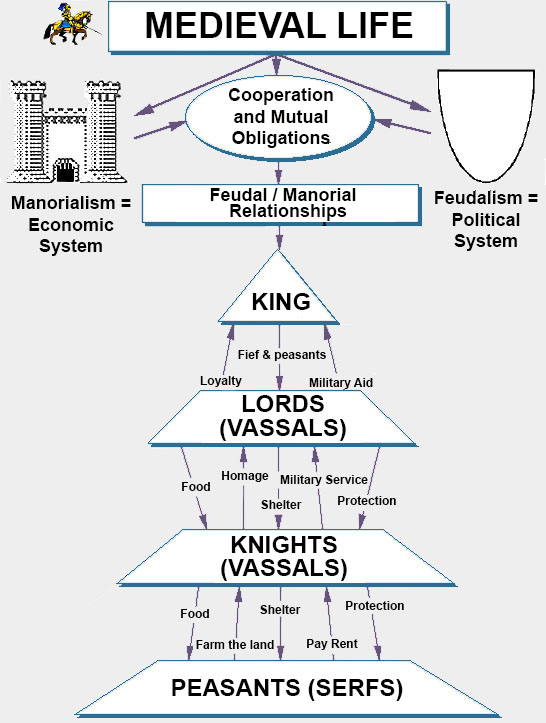
Source: Social Organization of Feudal Society, Epistemic Forms

Source: Social Organization of Feudal Society, Epistemic Forms
![]() Watch this video on manorialism.
Watch this video on manorialism.
Source: Manorialism, MrZoller, YouTube
![]() Activity: Drag and drop the following groups of people in the correct place within the hierarchy table below.
Activity: Drag and drop the following groups of people in the correct place within the hierarchy table below.
Now that you know about the Manorial System, write in your notes about what it may have been like to live during this time.
The manorial system developed alongside feudalism for the following reasons:

The manorial system is the economic counterpart to feudalism, which is fundamentally a system of mutual cooperation. In this system:

The manorial system provided for the basic needs of the community, but not much beyond it, except for the lords. Once the manor was established, there was little economic growth and low technological progress. Self-sufficiency limited specialization and the production of surplus goods needed for trade.
Manors had little incentive to cooperate with each other, and lords sometimes struggled to enforce the oaths of their vassals. Serfs had few opportunities to advance out of the low station of their birth, wasting their human potential.
In short, the manorial system limited the economic development of a region, which became increasingly apparent over time. People grew increasingly dissatisfied with the arrangement that privileged the very few at the expense of the many.
The system collapsed when Europe was struck with the Bubonic Plague, which killed about one-third of the population. Manors could no longer be self-sufficient. By necessity, regions needed to cooperate with each other and people had to occupy new roles in the economy.
